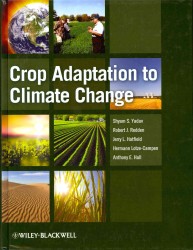- ホーム
- > 洋書
- > 英文書
- > Philosophy
Full Description
This volume brings together essays -- three of them previously unpublished -- on the epistemology, ethics, and politics of memory by the late feminist philosopher Sue Campbell. The essays in Part I diagnose contemporary skepticism about personal memory, and develop an account of good remembering that is better suited to contemporary (reconstructive) theories of memory. Campbell argues that being faithful to the past requires both accuracy and integrity, and is both an epistemic and an ethical achievement. The essays in Part II focus on the activities and practices through which we explore and negotiate the shared significance of our different recollections of the past, and the importance of sharing memory for constituting our identities. Views about self, identity, relation, and responsibility (all influenced by traditions in feminist philosophy) are examined through the lens of Campbell's relational conception of memory. She argues that remaining faithful to our past sometimes requires us to re-negotiate the boundaries between ourselves and the collectives to which we belong. In Part III, Campbell uses her relational theory of memory to address the challenges of sharing memory and renewing selves in contexts that are fractured by moral and political difference, especially those arising from a history of injustice and oppression. She engages in detail Canada's Indian Residential Schools Truth and Reconciliation Commission, where survivor memories have the potential to illuminate the significance of the past for a shared future. The study of memory brings together philosophers, psychologists, historians, anthropologists, legal theorists, and political theorists and activists. Sue Campbell demonstrates a singular ability to put these many different areas of scholarship and activism into fruitful conversation with each other while also adding an original and powerful voice to the discussion.
Contents
Preface ; Editors' Introduction ; Note on Sources ; Author's Introduction: The Second Voice: A Manifesto ; Part I. Our Faithfulness to the Past ; Chapter 1: Models of Minds and Memory Activities ; Chapter 2: Our Faithfulness to the Past: Reconstructing Memory Values ; Chapter 3: Memory, Truth, and the Search for Integrity ; Part II. Memory, Diversity and Solidarity ; Chapter 4: Inside the Frame of the Past: Memory, Diversity, and Solidarity ; Chapter 5: Memory, Reparation, and Relation: Starting in the Right Places ; Chapter 6: Remembering Who We Are: Responsibility and Resistant Identification ; Part III. Remembering for the Future ; Chapter 7: Remembering for the Future: Memory as a Lens on the Indian Residential Schools Truth and Reconciliation Commission ; Chapter 8: Challenges to Memory in Political Contexts: Recognizing Disrespectful Challenge
-

- 電子書籍
- 井口裕香『週プレ プラス!』アザーカッ…
-

- DVD
- シルバラード





